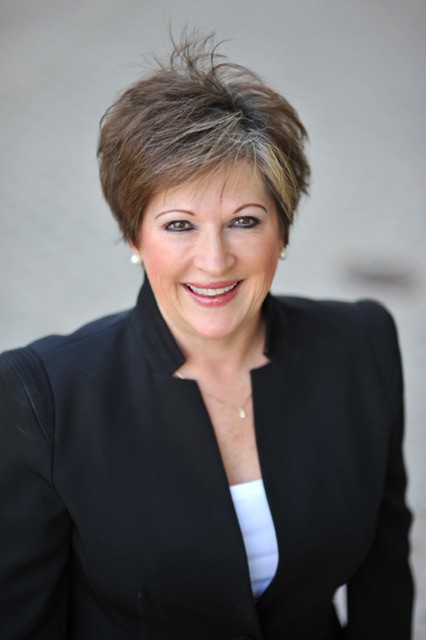

By Laura Baldwin and Julie Medler, Managing Directors of Golden Seeds
August 14, 2019
It’s hard to miss Gail Page’s passion for healthy babies. As the executive chairperson and co-CEO of NX Prenatal Inc., a private, U.S.-based molecular diagnostics company, she’s overseeing the development of diagnostic assays for adverse pregnancy conditions, such as preterm birth as early as 10 weeks’ gestation.
During a recent Q&A, her determination was clear when she talked about the enormous impact that preterm birth has on babies and their families. Golden Seeds’ Laura Baldwin and Julie Medler sat down with Gail to discuss how NX Prenatal is on a mission to keep babies in utero for as long as possible.
GP: About five years ago, our co-founders came to understand that by applying the innovative exosome technology in the maternal fetal space, one had the opportunity to detect the proteins that modulate the balance between the mother and baby at a very early point in time in the pregnancy. This innovation coupled with artificial intelligence/bioinformatics had the potential to enable the next wave of early high-risk pregnancy detection.
Much like cancer, early detection for preterm birth risk is very important, as the optimal time for intervention is before 16 weeks into the pregnancy. Physicians need information as early as possible so they can apply the appropriate care pathway. Our goal is to keep the baby in the womb as long as possible to decrease the time spent in a neonatal intensive care unit (NICU) and the long-term disabilities associated with preterm birth.
GP: In our early conversations with physicians, they stressed the need to understand what’s going on in utero during the first trimester. Other technologies are unable to detect risk markers until weeks 20 or 21, which doesn’t leave doctors the time to intervene in a meaningful way; the recommended intervention timing is prior to week 16. That is what makes our proprietary exosome technology so important for healthy first-time moms, as they have no other indicator that they may be at risk. It provides doctors with the chance to improve outcomes by employing interventions such as bed rest, more diagnostic testing or progesterone therapy. High-risk protocols are in place, it is just identifying the women who need to be placed there.
The industry has done a great job figuring out how to keep a baby alive in a NICU, but it is still extremely important for babies to stay in utero as long as possible. For example, during the last four weeks of gestation, significant brain, liver, and lung development happens, and more than 50 percent of maternal antibodies transfer.
In addition, preterm birth costs the system approximately $26B a year. Preemies are often referred to in our industry as “million-dollar babies.” On average, one day in the NICU costs around $7,000 and some babies are in the NICU for up to three months. When babies come home from the NICU, they may have lifelong illnesses such as cerebral palsy or lung infections and constantly need to go to the doctor. It puts a lot of stress on the families. Our goal is to be able to offer the test for around $500 and to make it available to women during routine blood work at their 10- or 12-week appointment. Even if we can keep a baby out of the NICU for one week, imagine the cost savings. We also believe this price point is palatable for insurance companies, and the payback is documented.
GP: The biggest challenge we’ve had is educating the market on the severity of this unmet need. Unfortunately, preterm birth is a problem not necessarily associated with men and is thought of as a woman’s problem. In the beginning, we focused on groups that supported women’s health issues. We had several individual investors that had experienced preterm birth within their families and totally got it. So far, so good, but we still have a lot of work to do. Our next round of financing will focus on existing investors, high net worth individuals and family offices, as well as strategic investors.
We’re also working on educating doctors in preparation for a launch because once you get them on board, you can then start doing outreach direct to consumers. This avoids the situation where patients are asking for a test that doctors don’t know anything about. We’re thrilled to have the world-renowned Dr. Thomas McElrath as the company’s lead investigator. He manages the Preterm Birth Clinic at Brigham and Women’s Hospital in Boston and has been critical to have on board to ensure we’re developing something that is clinically useful.
GP: We’re currently in the final stages of clinical validation, which is the last phase before launching our test in the market. We were recently awarded 2,400 blood samples, at two time points, collected by the National Institute of Health. We can use those samples to do our clinical validation work this year which will lead to commercialization. This was a huge endorsement for the company and the technology.
GP: It’s important to understand that not everyone is meant to be an entrepreneur — it takes a lot of stamina and patience. If you are a young entrepreneur, surround yourself with people that have experience that you can learn from. Understand that, as a founder, once your idea has blossomed, it’s okay to hire a CEO or CFO. While you’ll always remain an integral part of the company, you can’t be everything to everyone. Having that fortitude to build the right team will move you forward.
GP: It’s been phenomenal. These are women who are seasoned and have a real passion for women’s issues and supporting women.
The most important thing that I have learned from them is that they are realistic about the path to success and they remain engaged with you. They work hard to understand your product and determine where they can make introductions. They’re supportive, honest, direct, and approachable. I’ve learned a lot from them, and I think they, in turn, have learned from us. It’s a very synergistic relationship.
For more wisdom like this from other amazing female leaders, follow Golden Seeds on Twitter.